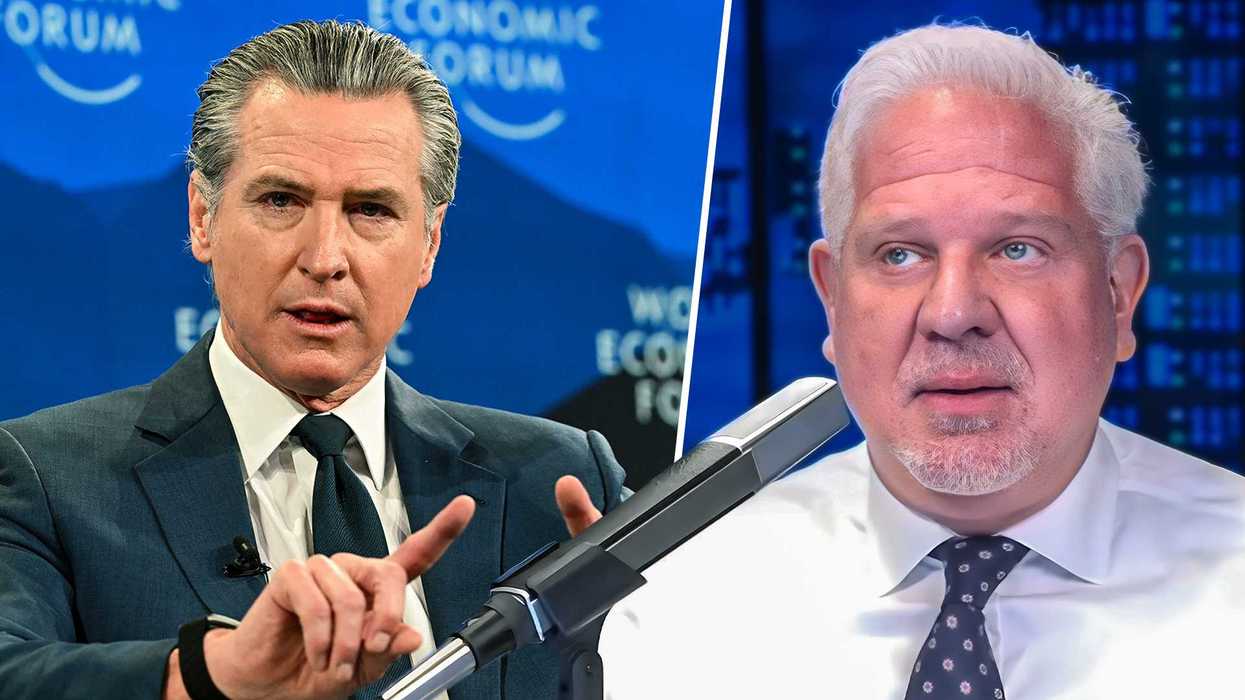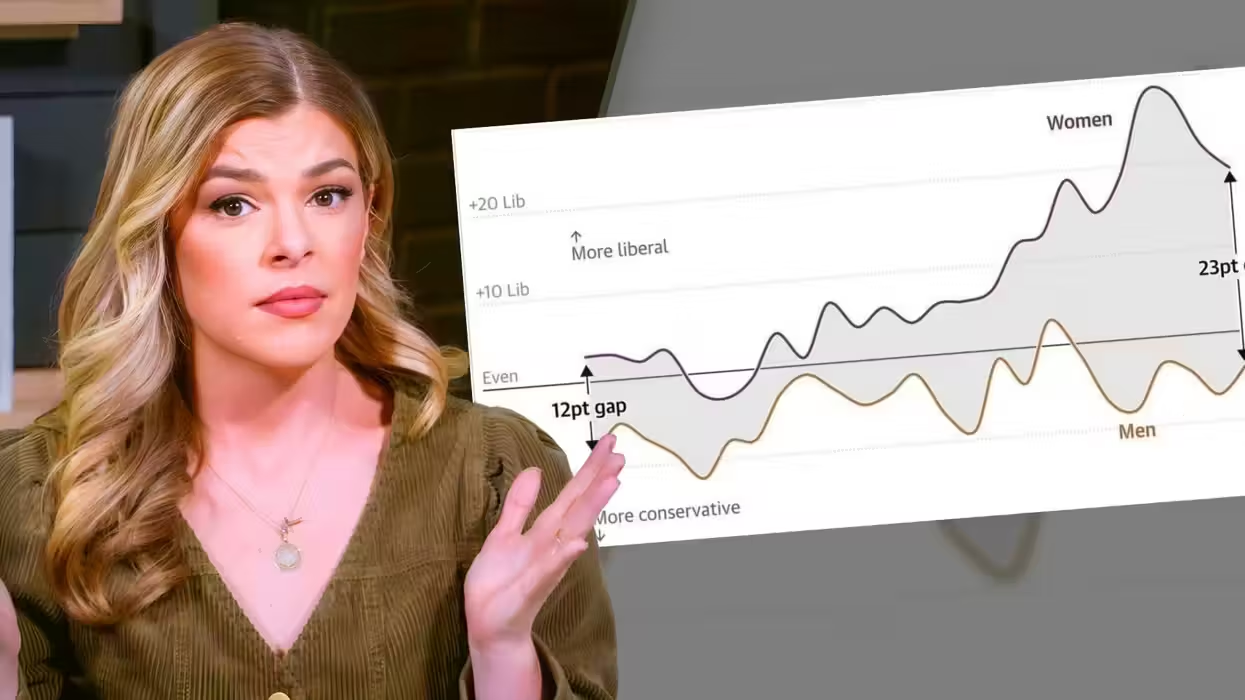On Wednesday, Sen. Bernie Sanders (I-VT) published an op-ed in "USA TODAY's" “Another View” section, spelling out his concerns about hurting the poor and how to put America back on a positive fiscal path. Despite the emotional and ostensibly heartfelt words used in the op-ed, there were so many inaccuracies and misleading statements one is left wondering if the senator was merely offering crocodile tears.
 Sen. Bernie Sanders (I-VT) speaks during a protest held by furloughed federal workers outside the U.S. Capitol to demand an end to the lockout of federal workers caused by the government shutdown October 4, 2013 in Washington, DC. Photo Credit: Getty Images
Sen. Bernie Sanders (I-VT) speaks during a protest held by furloughed federal workers outside the U.S. Capitol to demand an end to the lockout of federal workers caused by the government shutdown October 4, 2013 in Washington, DC. Photo Credit: Getty Images
First, the senator decries how “almost all new income created is going to the top 1 percent and… the gap between the very rich and everybody else is growing wider…” He fails to identify why this is the case, but his insinuation is that government can make things better. This assessment ignores how government is a primary cause of inequality.
Consider:
· Government interventions such as five years of quantitative easing that artificially boost the wealthy-dominated stock market.
· Dodd-Frank and the regulatory state in general give great help to the rich by creating competitive barriers to entry for smaller competitors.
· TARP spent Main Street’s money to bail out Wall Street, though the big guys did pay the money back.
· Tax loopholes benefiting certain industries – such as the $67 billion in the January fiscal cliff deal that helped out Goldman Sachs and NASCAR – make inequality worse as well.
· Farm subsidies are primarily Main Street providing money to wealthy farmers.
Next, the senator writes “We must not cut Social Security, Medicare or Medicaid.” Right now, these programs take up approximately 42 percent of the federal budget, and they continue to grow fast.
The senator claims raising taxes and going to a socialized health care system would prevent Social Security and Medicare from endangering the country’s fiscal survival, but as seen below his belief is based upon false premises.
One of the oldest canards in the big-spenders’ array of political weapons is the idea that the wealthy don’t pay enough in taxes. However, in 2009, the top 1 percent of earners made 50 times as much as the bottom 20 percent – on average, for both income brackets – while paying 1,500 times as much in taxes. Despite this, Sanders writes “the time is long overdue for Congress to ask the wealthiest people in this country to start paying their fair share of taxes.”
Next, the senator says Social Security “has been enormously successful in cutting the rate of senior poverty.” This popular claim ignores that Social Security was launched during the Great Depression – the worst economic times seen in American history. Comparing that time to any other is historical manipulation at its finest.
Related, the alleged success of Social Security comes only at the expense of allowing the American people to invest their own money as they see fit – via personal ownership of at least part of their Social Security taxes, for example – which would earn far more in private investments than in Treasury bonds and the other places Social Security’s Trust Fund is invested.
 Protesters upset with the ongoing federal government shutdown and what they fear could lead to Social Security benefit reductions rally outside Republican U.S. Rep. Steve Daines' office in Helena, Mont., Tuesday, Oct. 8 2013. (AP Photo/Matt Gouras)
Protesters upset with the ongoing federal government shutdown and what they fear could lead to Social Security benefit reductions rally outside Republican U.S. Rep. Steve Daines' office in Helena, Mont., Tuesday, Oct. 8 2013. (AP Photo/Matt Gouras)
Furthermore, the alleged success cited by Sanders ignores the failure of Social Security finances to keep up with demographics. Social Security’s original promise was that by 1949, people and their employers “will each pay 3 cents on each dollar you earn, up to $3,000 a year. That is the most you will ever pay.”
The current rate is 12.4 percent of income – 6.2 percent from each employer and employee – up to $113,700. And despite Sanders’ claim to the opposite, the Trust Fund is projected by its trustees to be bankrupt by 2033, and cause either major tax hikes or major cuts to stay solvent.
A final note on Social Security: Sen. Sanders says raising the Social Security tax cap to hitting annual income over $250,000 will make the program solvent for 50 years. However, Social Security Trustee Charles Blahous blasted this theory to smithereens last year, noting even elimination of the cap would “fail to keep Social Security in long-term balance.”
Sanders closes his op-ed by calling for socialized medicine to create “a more cost-effective system than we have now.” This ignores several realities of the American health care system. First, part of the reason the American health care system costs more is because innovation is done here, and thus the costs are borne by the American people. European nations have their costs socialized by American consumers, so their costs are lower.
Furthermore, costs in America have seen a direct correlation between third-party payers and higher costs over the last 50 years – as consumer-paid expenses dropped from 48 percent to 12 percent, cost has gone up by five times the period’s overall growth in GDP.
Finally, much of Europe’s socialized medicine is kept cost-effective through rationing – essentially, government-decided value of life.
As the long-overdue debate about the national debt continues, one would hope senators would take an honest look at the efficacy of solutions they offer. Unfortunately, Sen. Sanders’ “solutions” are more ideological wishful thinking than constructive problem-solving.
–
TheBlaze contributor channel supports an open discourse on a range of views. The opinions expressed in this channel are solely those of each individual author.

 Sen. Bernie Sanders (I-VT) speaks during a protest held by furloughed federal workers outside the U.S. Capitol to demand an end to the lockout of federal workers caused by the government shutdown October 4, 2013 in Washington, DC. Photo Credit: Getty Images
Sen. Bernie Sanders (I-VT) speaks during a protest held by furloughed federal workers outside the U.S. Capitol to demand an end to the lockout of federal workers caused by the government shutdown October 4, 2013 in Washington, DC. Photo Credit: Getty Images






